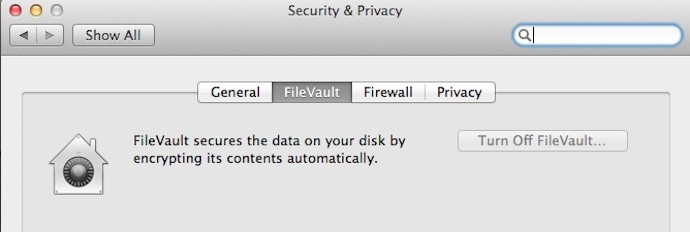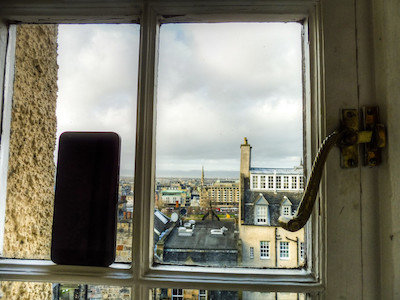
The Internet is our lifeline to family and friends when traveling but many of the services we use track us at best; at worst: provide email metadata and video calls to intelligence agencies like the National Security Agency (NSA). And it’s not just the United States participating in mass, warrant-less surveillance, many governments have been working together to undermine your privacy.
Start At The Source
If you understand your digital rights as a traveling in the free world, you know that your laptop and other gadgets are considered imports, making them subject to searches. Your passwords won’t do much good either, since in many countries not giving them up can land you in jail. To work around that legality, set up Truecrypt hidden folders to protect your laptop from customs agents.

- Use Hard Drive Encryption – Encrypting your entire hard drive with BitLocker (bundled with certain versions of Windows Vista, 7, and 8) or Mac OS X’s built-in FileVault will keep your data safe if your laptop is stolen.
In case of theft of confiscation, previously mentioned Project Prey, has an option to remotely wipe files and folders if recovery isn’t feasible.
 For Your Inbox Only
For Your Inbox Only
A standard email is the digital equivalent of a postcard, anyone along the transmission path can read its contents. The free Chrome extension SecureGmail or Firefox’s Encrypted Communication plugin will password-encrypt messages sent from a Gmail account. For other email providers, Mailvelope is a solid solution but requires more setup.
- Search Securely – Google shares a lot of data with the NSA, alterantive DuckDuckGo doesn’t at all.
- Social Media – Gizmodo has a good guide on locking down your Facebook privacy and Lifehacker shows you how to opt-out of Twitter tracking.
Depending on where you are in the world, you may also want to consider covering your browsing tracks. The previously mentioned Tor keeps you anonymous online and HTTPS Everywhere will protects website connections when possible.
Video Conferencing, Chats, And Texts
Although Skype is a good way to send large files and encrypts your chats, Microsoft can and has decrypted your messages and video calls for the NSA. (Keep that in mind next time you make a call.) If you’re worried about your chat privacy, a client like Pidgin (with the Off The Record plugin installed) or Cryptocat can be secure alternatives. (But only if the other person is using an OTR-enabled client.)
Text encryption is a bit more fluid, the $.99 iOS app Text Fortress or free Android app TextSecure makes the process nearly seamless. Along that same vein, Hushed lets you create disposable phone numbers in over 40 countries if you want don’t want give out your real digits.
Proxy Around Censorship
I’ve talked about proxies many times before and two that work well to protect your privacy are Hotspot Shield and TunnelBear. Those tools obfuscate your web browsing from eavesdroppers and reroute you around Internet censorship.
- Surfing At Internet Cafes – Hide My Ass is an effective browser-based proxy service.
- Share Files Safely – When sharing files using a service like Dropbox (a company that also shares with the NSA), use Truecrypt to encrypt your uploads or consider a service like Spider Oak.
For now, it might not be prudent to encrypt every email or chat you have online. Yet when traveling and crossing into various jurisdictions, implementing some basic precautions can help keep your privacy under your own protection.












Who cares ??? I don´t have any special secrets… They can hear/read everything but I doubt they have any interest, I´m not THAT important hehe…
True, that’s how many people feel. But do you trust how your data is handled? By all governments? What if that information is stolen by third-party groups, untrustworthy employees?
I like this view on the topic:
http://www.wired.com/politics/security/commentary/securitymatters/2006/05/70886
No secrets? That’s great! Do you mind posting a scanned copy of your birth certificate and most recent bank statement? That’s not secret is it?
Privacy doesn’t mean you have secrets. Nice that you haven’t done anything wrong, but it is other people you can’t trust.
Another interesting point is that when travelling you may *think* you aren’t do anything wrong but you may be. Russia recently announced they will be arresting tourists who are openly gay. http://www.travelandescape.ca/2013/07/russia-says-it-will-arrest-openly-gay-tourists/
But what does openly gay mean? Does it mean you have shown that you are gay on social media? I don’t know the answer, but why not?
Perhaps you are travelling in China and you post a photo you took of some cool street food, but there was an official government building in the background. Guess what, you broke the law taking that photo! Now if the Chinese government have a drag net they could arrest you before leaving the country. Or they could find out after you have left the country but upon you next visit you are promptly detained and fed fish heads and soggy rice for the next 5 years.
Just something to think about. Privacy doesn’t mean you have secrets. And I think most countries follow, “ignorance of the law is no excuse”
Happy travelling!
A dangerous attitude to have with a government.
Thanks so much, this is exactly what I came here looking for. I don’t have any secrets either but it’s about privacy. We should all have the right to online privacy. All of Michael’s points show how privacy matters, even if you have done nothing wrong. It has recently been revealed that as early as 2008 Wikileaks and all of its ‘supporters,’ meaning anyone who has gone on their site was considered an enemy and to be watched. The same goes for Anonymous. I don’t think it’s fair that that gives people the right to read your Facebook messages, emails, Skype and search history simply because you visited a website.
Given the ongoing Snowden revelations as well, people should be outraged as to what is going on. A lot (if not nearly everything governments can) is being monitored and the inherent security of the Internet being dismantled to allocate power in a very few hands. I, like you, find all of this very troubling. Very.